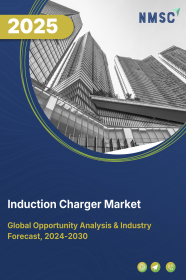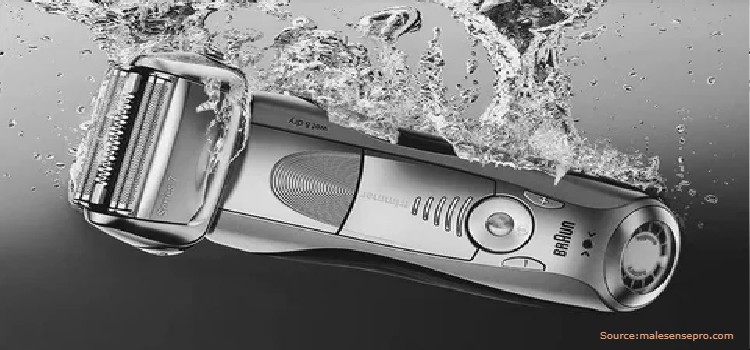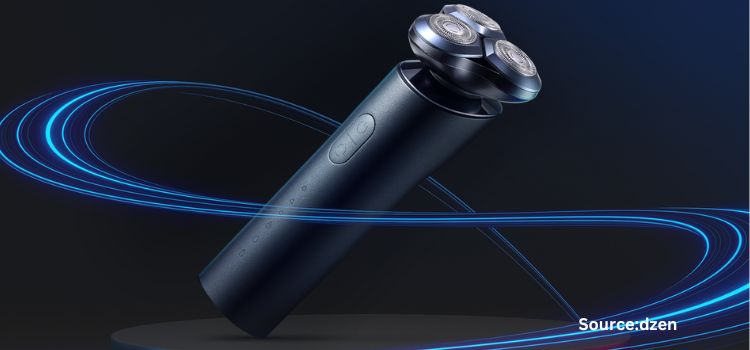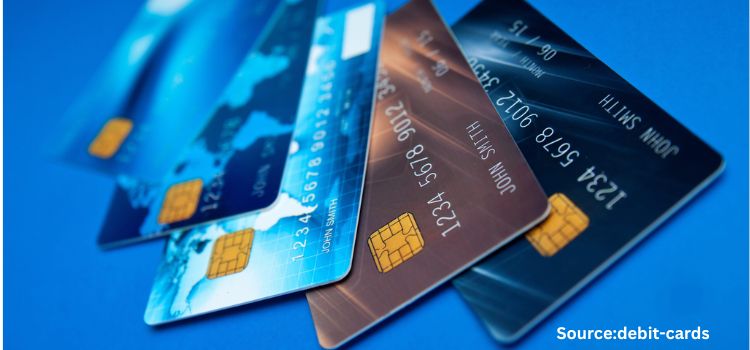
Induction Charger Market by Power Output (5W to 15W, 16W to 30W, and Above 30W), by Charging Standards (Qi Standard and AirFuel/PMA), and by Distribution Channel (E-Commerce or Online and Offline) – Global Opportunity Analysis and Industry Forecast, 2024–2030
Industry: Retail and Consumer | Publish Date: 26-Mar-2025 | No of Pages: 328 | No. of Tables: 195 | No. of Figures: 160 | Format: PDF | Report Code : RC1201
US Tariff Impact on Induction Charger Market
Trump Tariffs Are Reshaping Global Business
Market Overview
The global Induction Charger Market size was valued at USD 670.1 million in 2023, and is predicted to reach USD 1992 million by 2030, with a CAGR of 16.2% from 2024 to 2030.
The induction charger, also known as wireless charger is a segment of the broader consumer electronics market. It is rapidly evolving and gaining prominence in the global tech landscape. This industry revolves around developing and distributing wireless charging technology, a method that allows for the transfer of electrical power without the need for physical connectors or cables. The core technology behind induction chargers is based on electromagnetic induction, where an electromagnetic field transfers energy between two objects, typically a charging pad and a compatible device.
The induction charger market has grown substantially in recent years, driven by the increasing adoption of smartphones, tablets, and other portable electronic devices that support wireless charging. Moreover, integrating wireless charging capabilities in public spaces, such as cafes, airports, and cars, has further enhanced its practicality and appeal.
As the industry evolves, critical players in the market are focusing on research and development to overcome challenges such as compatibility issues, energy loss during transmission, and limited charging range. These efforts aim to improve wireless charging systems' overall user experience and efficiency.
Growing Smartphone, Tablet, Laptop, and Smartwatches Usage Fuels the Industry
The induction charger industry is experiencing substantial growth, largely propelled by the worldwide increase in the utilization of smartphones and portable devices. The number of smartphone users worldwide has significantly increased from 2016 to 2023. In 2016, there were 3.7 billion smartphone users, which accounted for 49.40% of the global population. By 2023, the global number of smartphone users is projected to reach 6.92 billion, indicating that 85.74% of the world's population will own a smartphone.
Growing use of wireless devices boosts demand for convenient charging solutions such as induction chargers. Standardization, especially with Qi, is making chargers more compatible. Manufacturers are innovating to provide faster, more efficient, and multi-device charging solutions, catering to the demands of modern, connected lifestyles. This highlights the rising importance and demand for wireless charging solutions globally.
The Growing E-commerce and Online Retail Industry Boosts the Market Growth
The induction charger industry benefits from the widespread growth of e-commerce and online retail, providing global accessibility. E-commerce is projected to represent 41% of global retail sales by 2027, up from 18% in 2017. In 2022, Europe saw a 3% increase, while the U.S. and Asia experienced a 7% rise in e-commerce sales. Online platforms play a vital role in educating consumers about induction chargers, offering product details, reviews, and comparison options. For manufacturers, e-commerce provides marketing opportunities through targeted ads and special offers, leveraging valuable consumer data to understand market needs. The agility of online retail allows niche market penetration and quick adaptation to market changes, contributing to the industry's growth.
Standardization of Wired Charger Across Regions Inhibits the Induction Charger Market
The widespread use of USB Type-C connectors in wired chargers poses a significant challenge for the induction charger market. This standardization brings compatibility across various devices, offering a convenient and versatile charging option. USB Type-C's fast charging capability, often surpassing many wireless chargers, is particularly attractive to users who prioritize quick charging. The European Parliament mandates that mobile phones, tablets, and cameras in the European Union must have a USB Type-C port by the end of 2024, extending to laptops by spring 2026. This regulation, focusing on reducing e-waste and promoting sustainability, establishes a standardized charging approach, thus restraining the growth of the market.
Introduction of Qi v2.0 Standard for Wireless Charging is Expected to Create Ample Opportunity
The introduction of Qi v2.0, the latest wireless charging standard by the Wireless Power Consortium (WPC), is expected to revolutionize the induction charger industry. Qi v2.0, recognized as the next generation standard, brings significant enhancements such as magnetic attachment, faster charging, increased efficiency, and heightened user convenience.
As Qi v2.0 establishes itself as the global benchmark for wireless charging, its widespread adoption is poised to simplify the market and enhance universal compatibility, driving substantial growth in the induction charger sector. The positive industry response to Qi v2.0, including awards such as 'Best Mobile Tech' and 'Best in Show,' further underscores its potential impact on the wireless charging landscape.
Asia-Pacific Dominates the Induction Charger Market
The induction charger market in Asia-Pacific is experiencing significant growth, due to the presence of several technological innovation hubs in countries including China and Japan. China leads in wireless charging R&D, placing it at the forefront of the induction charger industry. It is known for its extensive manufacturing capacity and low labour costs and is poised to maintain its global electronics export dominance.
In 2021, the country accounted for 27.4% of the global electronics market, exporting USD 671.5 billion worth of devices such as smartphones and laptops. This significant market share inherently shapes and propels regions wireless charger industry, as the demand for rapid and efficient charging solutions aligns with the nation's supremacy in electronic manufacturing.
Also, the region is witnessing a surge in demand for induction chargers due to the simultaneous growth in smartphone usage and the thriving e-commerce sector. As smartphone adoption continues to rise across the region, consumers are increasingly seeking convenient and efficient charging solutions, propelling the demand for wireless chargers. Smartphone penetration rate in Japan reached 70.2% in 2023, a significant increase from 57.8% in 2019, indicating a 21.5% increase over four years.
Additionally, the booming e-commerce industry, characterized by a surge in online transactions and mobile device usage, further emphasizes the need for hassle-free charging options. According to the Economist Intelligence Unit (EIU), South Korea's online retail market has grown 22.5% annually from 2012-2021 and is expected to reach a 16.8% share of total retail sales by 2026, up from 15% in 2021. The combination of these factors creates a robust market for induction chargers in Asia-Pacific, where consumers prioritize technological convenience in sync with the rapid expansion of the digital economy.
Europe is Expected to Show Steady Growth in the Induction Charger Market
Europe is expected to witness an increased demand for induction charger in the coming years, due to government initiatives that encourage the adoption of advanced technologies. For example, the European Investment Bank (EIB) invested USD 16.99 million in Eggtronic's innovative technologies, a company based in Italy that specializes in highly integrated mixed-signal controllers designed for high-performance wired and wireless power converters. The investment will contribute to Eggtronic's R&D for marketing its technologies to businesses and consumers and will help foster the growth of this strategic sector in Italy to make a technological, ethical, and social contribution. Such government support not only boosts innovation within the induction charging sector but also imparts confidence in both consumers and businesses, fostering a conducive environment for the widespread adoption of induction chargers throughout Europe.
In addition, the region's strong emphasis on environmental awareness and sustainability are significantly boosting the growth of the market. Consumers in Europe are increasingly conscious of the ecological impact of their choices, and wireless charging is perceived as a more environmentally friendly option. By eliminating the need for disposable cables and connectors, induction chargers contribute to reducing electronic waste. This aligns with the values of environmentally conscious consumers who actively seek products that minimize their ecological footprint. As sustainability becomes a more significant consideration in purchasing decisions, the demand for induction chargers is expected to grow, driven by the European market's commitment to eco-friendly practices.
Competitive Landscape
Several market players operating in the induction charger market include Samsung Electronics Co. Ltd., Apple Inc., Anker Technology Co. Ltd., Belkin International, Inc., Xiaomi Corporation, Huawei Technologies, ASUSTeK Computer Inc., ZAGG, Energizer Holdings, Inc., Aukey Corporation Limited, and others. These market players are adopting product launches across various regions to maintain dominance in the induction charger market.
For instance, in August 2023, Anker launched innovative travel chargers featuring advanced induction charging capabilities, catering to the growing demand for portable and efficient charging solutions. This launch enhances Anker's position in the induction charger market, addressing the needs of on-the-go consumers.
Also, in January 2023, ASUS launched Chromebox 5 with a built-in 15W wireless charger, embracing the convenience of induction charging technology. This integration signifies ASUS's commitment to providing multifunctional and streamlined solutions, contributing to the evolution of the induction charger market.
Induction Charger Market Key Segments
By Power Output
-
5W to 15W
-
16W to 30W
-
Above 30W
By Charging Standard
-
Qi Standard
-
AirFuel/PMA
By Distribution Channel
-
E-Commerce or Online
-
Offline
By Region
-
North America
-
The U.S.
-
Canada
-
Mexico
-
-
Europe
-
The UK
-
Germany
-
France
-
Italy
-
Spain
-
Denmark
-
Netherlands
-
Finland
-
Poland
-
Sweden
-
Norway
-
Russia
-
Rest of Europe
-
-
Asia-Pacific
-
China
-
Japan
-
India
-
South Korea
-
Australia
-
Indonesia
-
Singapore
-
Taiwan
-
Thailand
-
Rest of Asia-Pacific
-
-
Rest of the World (RoW)
-
Latin America
-
Middle East
-
Africa
-
REPORT SCOPE AND SEGMENTATION:
|
Parameters |
Details |
|
Market Size in 2023 |
USD 670.1 Million |
|
Revenue Forecast in 2030 |
USD 1992 Million |
|
Growth Rate |
CAGR of 16.2% from 2024 to 2030 |
|
Analysis Period |
2023–2030 |
|
Base Year Considered |
2023 |
|
Forecast Period |
2024–2030 |
|
Market Size Estimation |
Million (USD) |
|
Growth Factors |
|
|
Countries Covered |
29 |
|
Companies Profiled |
10 |
|
Market Share |
Available for 10 companies |
|
Customization Scope |
Free customization (equivalent up to 80 working hours of analysts) after purchase. Addition or alteration to country, regional, and segment scope. |
|
Pricing and Purchase Options |
Avail customized purchase options to meet your exact research needs. |
Key Players
-
Samsung Electronics Co. Ltd.
-
Apple Inc.
-
Anker Technology Co. Ltd.
-
Belkin International Inc.
-
Xiaomi Corporation
-
Huawei Technologies
-
ASUSTeK Computer Inc.
-
ZAGG
-
Energizer Holdings Inc.
-
Aukey Corporation Limited

















 Speak to Our Analyst
Speak to Our Analyst





















